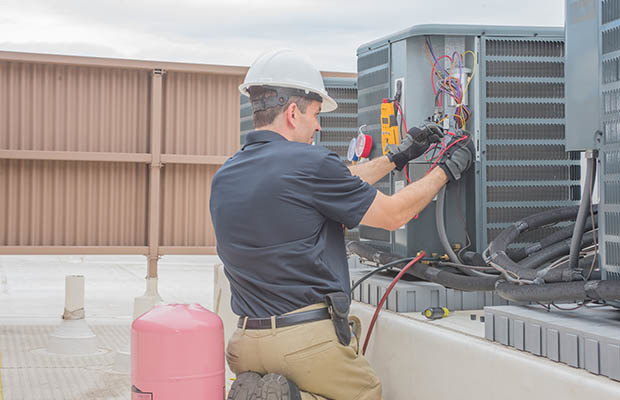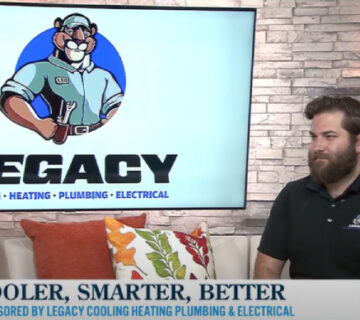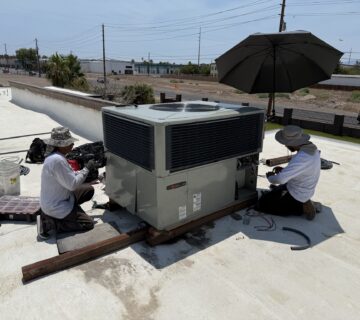With a subtropical climate, Las Vegas has long and hot summers. During the months of summer, your house can feel like an oven during the day as temperatures rise. This is why a heating, ventilation and air conditioning (HVAC) system is a crucial component in the house.
Though HVAC systems are durable, they are still subject to wear and tear, which can reduce performance. As such, to protect your loved ones from the excessive heat and undue discomfort, it is crucial to have your AC unit inspected annually, especially before summer. Other than exposing your family to extreme heat, an HVAC system that’s not in peak performance will increase your energy consumption.
Read on to find out some of the benefits of early AC inspection.
1. Ensures Your Family Is Comfortable During the Summer
At the height of summer, temperatures in Las Vegas can rise to over 100 degrees Fahrenheit. Even for a fully functional modern HVAC system, cooling the house when it is that hot is challenging. And, exposure to such high temperatures can result in dehydration, sleep disturbance, hyperthermia, and heat stroke, among other issues.
As such, safeguarding your family from such heat is not just about having a functioning AC unit but one that is in peak condition.
2. Keeps Your Energy Consumption Low
In order to maintain ideal room temperature in your house, HVAC systems rely on electricity and thus contribute a significant portion to your energy bills. However, the amount of energy your AC uses varies depending on its efficiency.
When your HVAC unit is not in prime functioning condition, it will have to work harder to perform the same function. This will translate to increased energy consumption, which will be reflected in your energy bill. As such, by having your HVAC unit inspected, it will be easy to identify problems and address them before your energy bills soar.
Some of the tasks technicians perform to ensure your HVAC system is efficient include:
- Visual inspection of the ducts
- Lubrication of moving parts
- Cleaning and changing filters
- Testing system controls
- Checking the calibration of your thermostat
- Ensuring all connections are tight
3. Increases the Lifespan of Your HVAC System
Installing an HVAC system requires a significant investment, and doing so increases the value of your house. Therefore, it is vital to ensure that it is in prime condition for as long as possible. HVAC systems have many sections, and most have mechanical parts that wear out over time. Though most units are designed to last at least ten years, you play a key role in ensuring this.
Therefore, it is crucial that any moving parts are well lubricated at all times, and those that are damaged are replaced swiftly to ensure other parts remain safe. By taking such precautionary measures, you will reduce the chances of your HVAC system breaking down while increasing its lifespan.
Think of your HVAC unit just like your car. The same way your vehicle needs regular maintenance checks and tune-ups to ensure a smooth ride, is the same way your HVAC needs to be inspected to ensure it can meet your heating and cooling needs.
4. Safeguard the Health of Your Family
Beyond failing to regulate indoor temperature efficiently and increasing your energy bills, a malfunctioning HVAC unit poses a great health risk to your loved ones. Along with heating and cooling your house, the HVAC unit ensures the circulation of fresh air.
Dust and pollutants can accumulate in different parts of the HVAC system, such as filters and ducts. If the ducts and filters are not clean, your HVAC system will spread dust and allergens inside the house. When your family is exposed to such contaminants, they may suffer health problems such as:
- Asthmatic attacks
- Frequent colds
- Respiratory problems
- Eye, nose, and throat irritations
- Fatigue
- Headaches
As such, for the sake of the health of your family members, ensure that your HVAC unit is inspected regularly.
5. Protects Your House
Due to the high summer temperatures in Las Vegas, heat can easily build-up inside the house. If this happens, your walls and floors will begin to crack. Rather than wait to incur the cost of HVAC and house repairs, it’s best to have your air conditioning system inspected.
6. Ensure Your House Is Safe
HVAC systems use refrigerant gas, and furnaces rely on fuel to function. Also, these units rely on intricate wiring to ensure energy is well distributed. When inhaled, refrigerant gas is toxic, and any fuel leaks or faulty wiring can ignite, thus putting your house and family at risk. During inspections, your technician will ensure that all the wiring is up to par, and there are no refrigerant or gas leaks.
7. Lower Repair Cost
Being electrical and mechanical units, HVAC systems are bound to get damaged from time to time. Regular inspection of the unit allows you to identify problems early on, which reduces the damage. As a result, the repair costs will be low.
8. Peace of Mind
When it comes to HVAC units, it is not a matter of if repair will be needed, but when. And, there’s nothing worse than having your HVAC system misbehaving when you need it most. Unfortunately, if your unit breaks down during summer, you may have to wait longer and pay more to get it fixed.
This is because the pressure exerted on HVAC systems during summer results in increased chances of break downs. As such, the demand for repair technicians will be higher. By having your HVAC unit inspected before summer, you will be able to rest assured that it will be in peak condition, and there’s little chance for the need for emergency repairs.
Regular Inspection and Maintenance Are the Key to Keeping Your HVAC System in Peak Condition
HVAC systems play a significant role in ensuring your family is comfortable and healthy. Therefore, your system must undergo regular inspection and maintenance to ensure it is in peak condition. LEGACY offers HVAC inspection and repair services. Get in touch with us to ensure your system is ready for summer.




